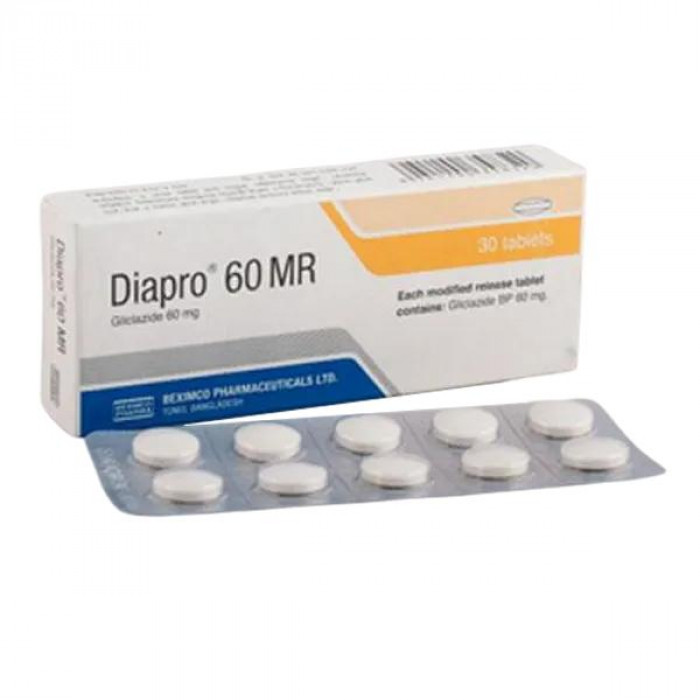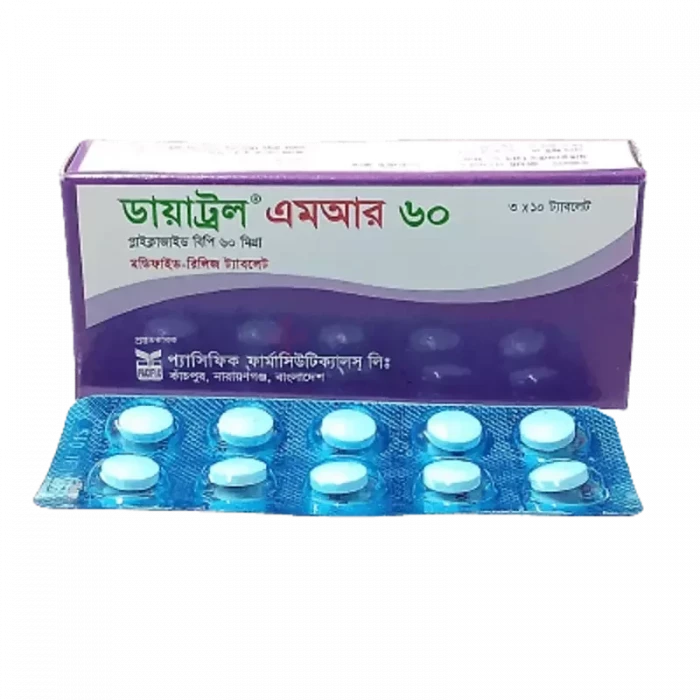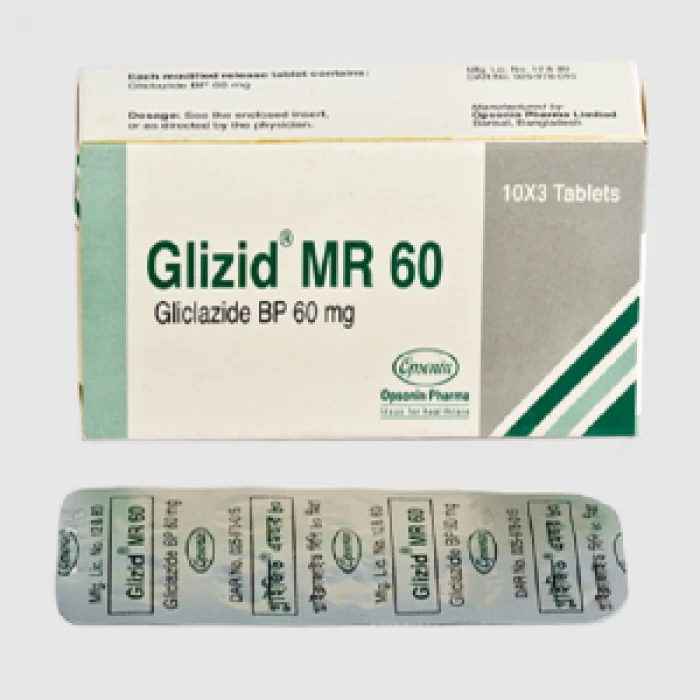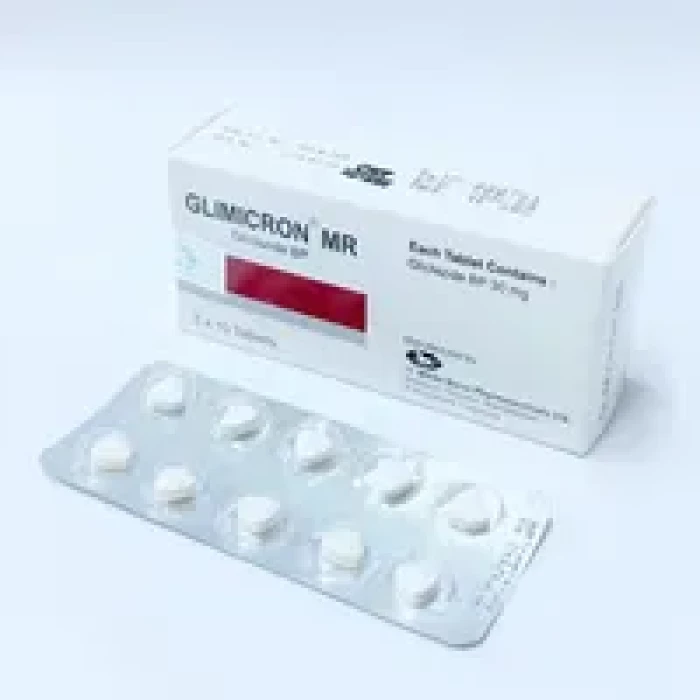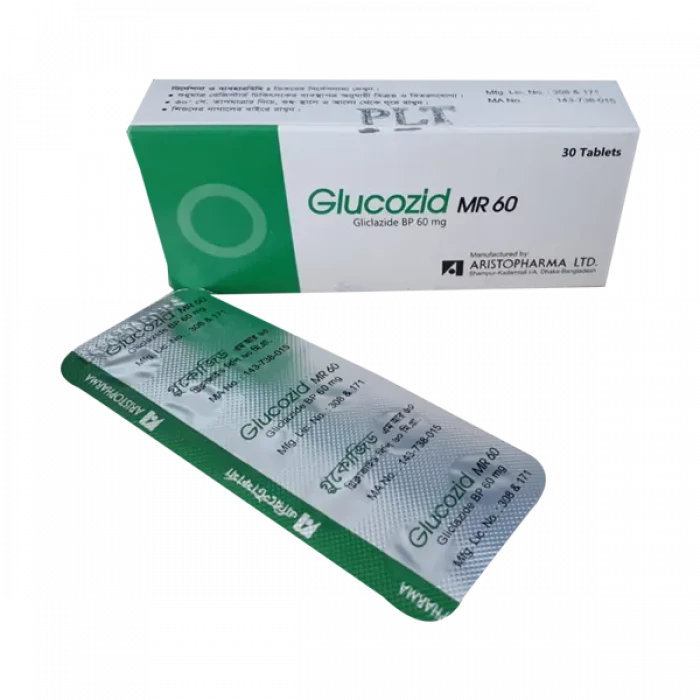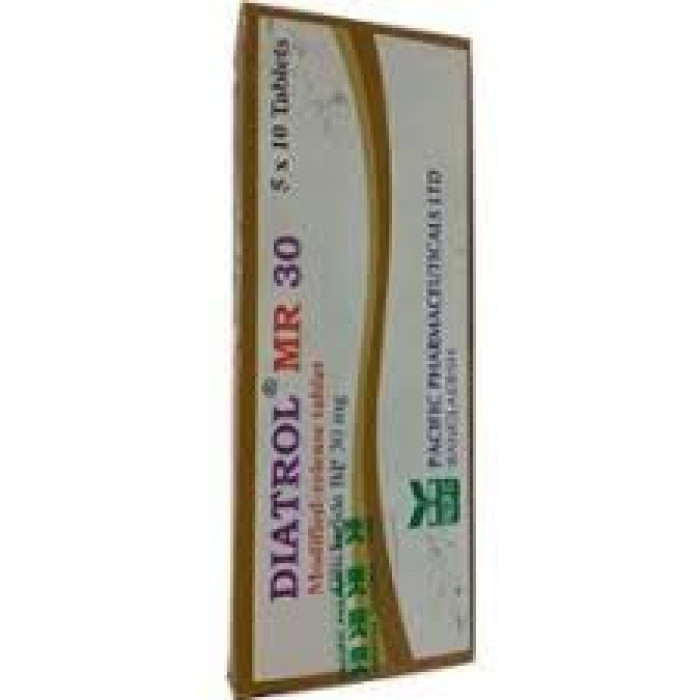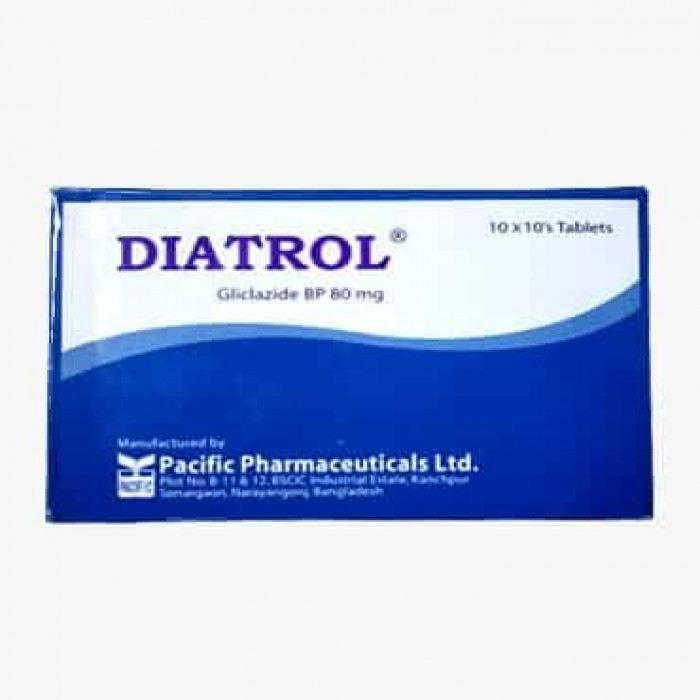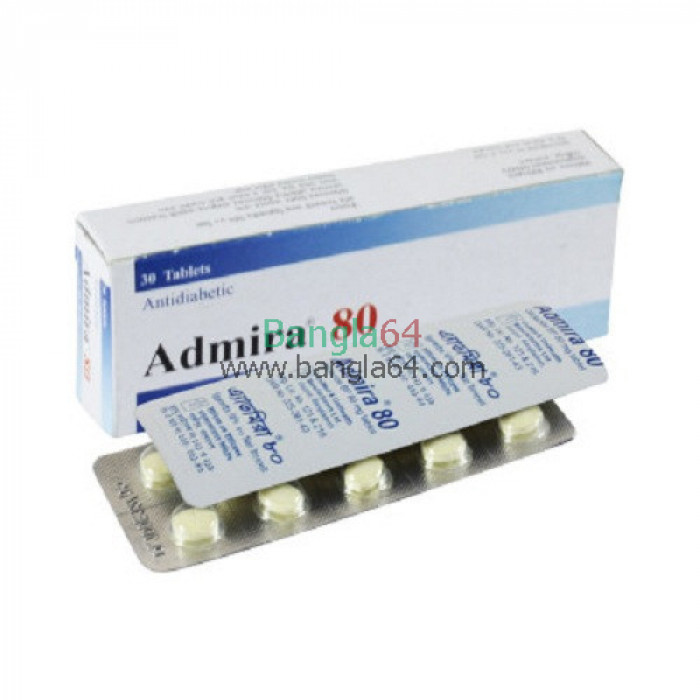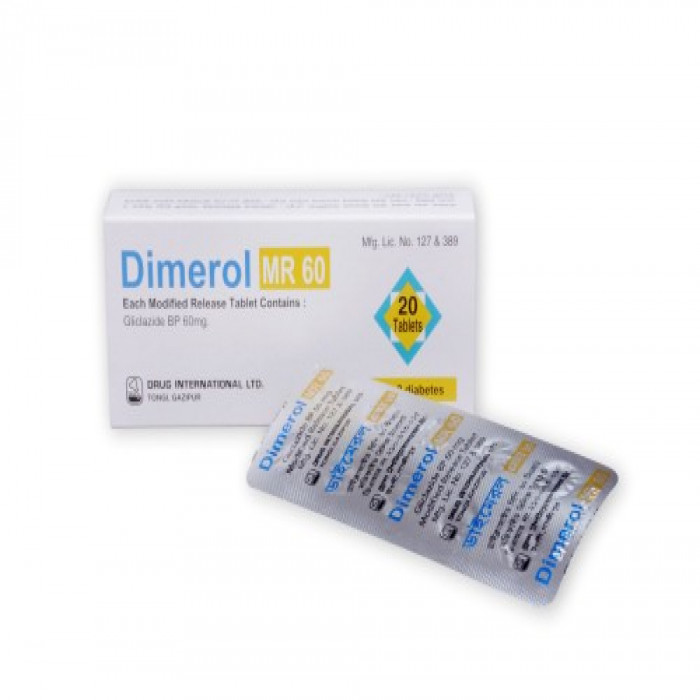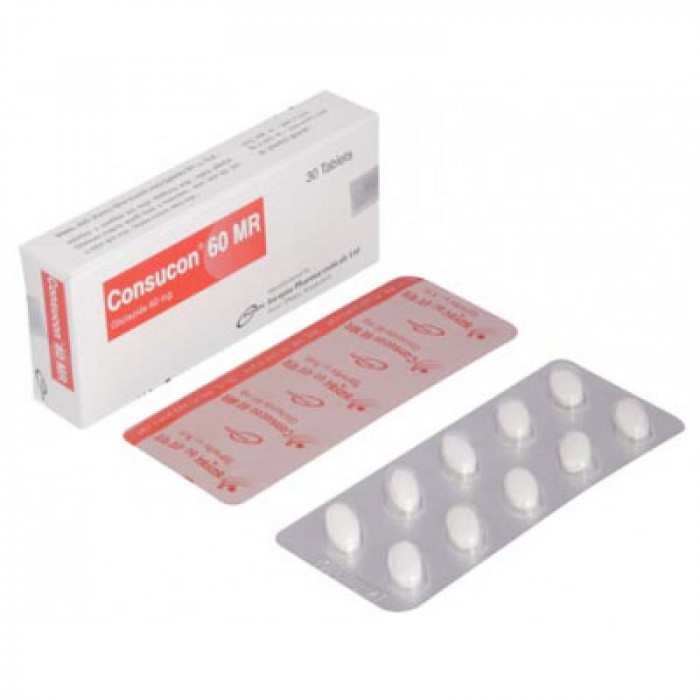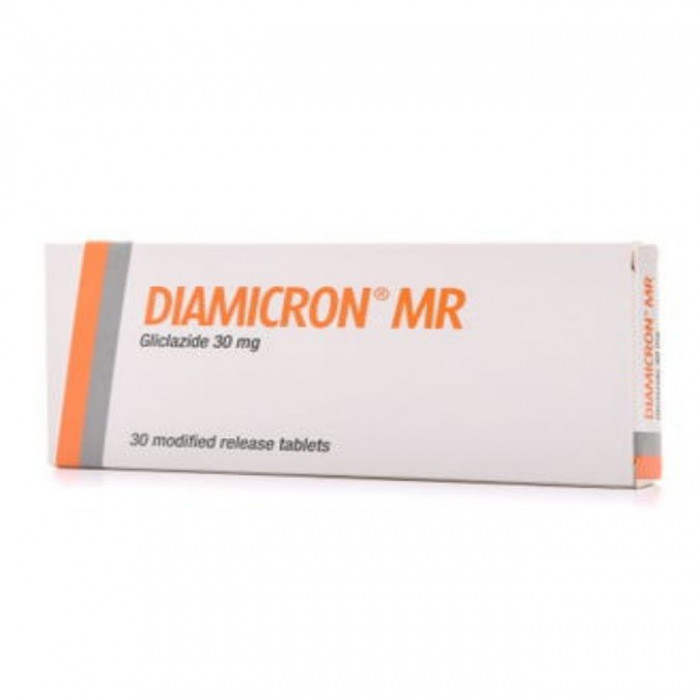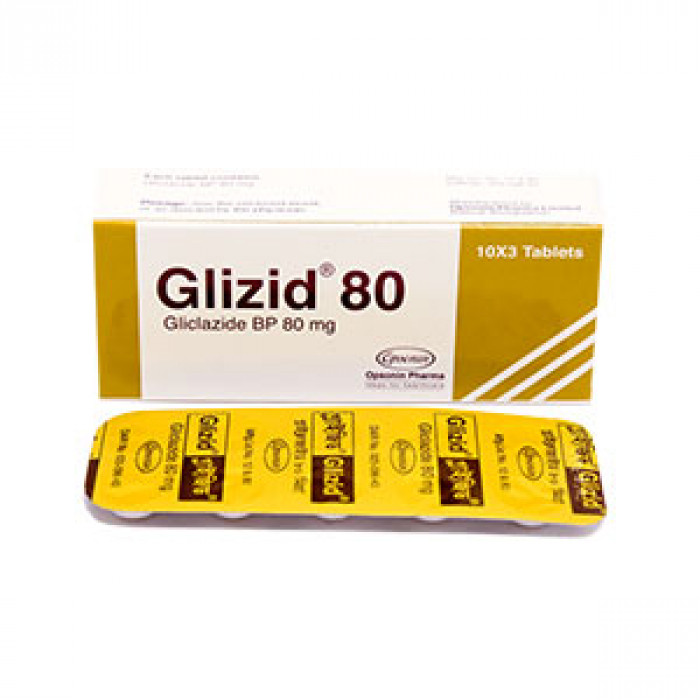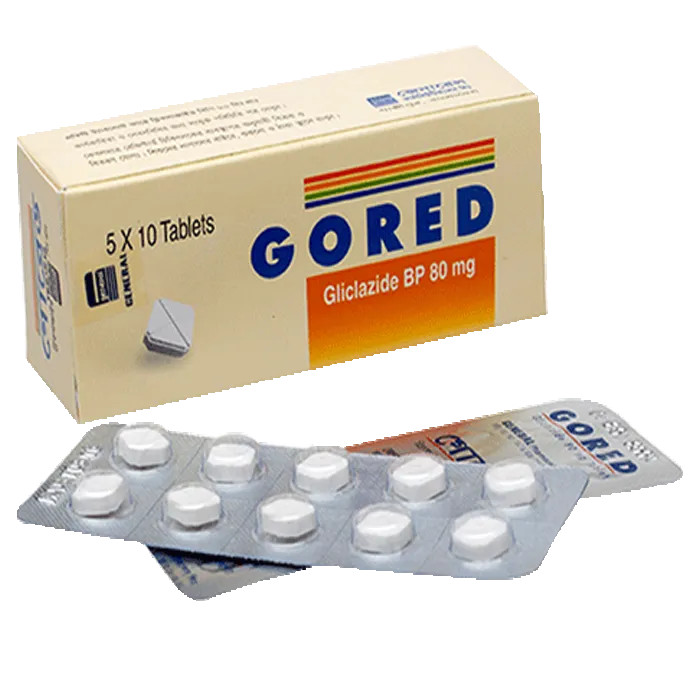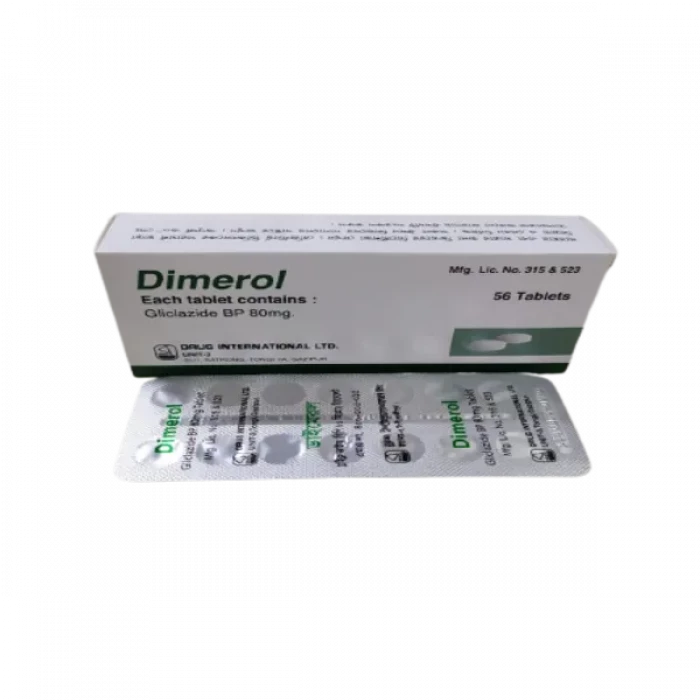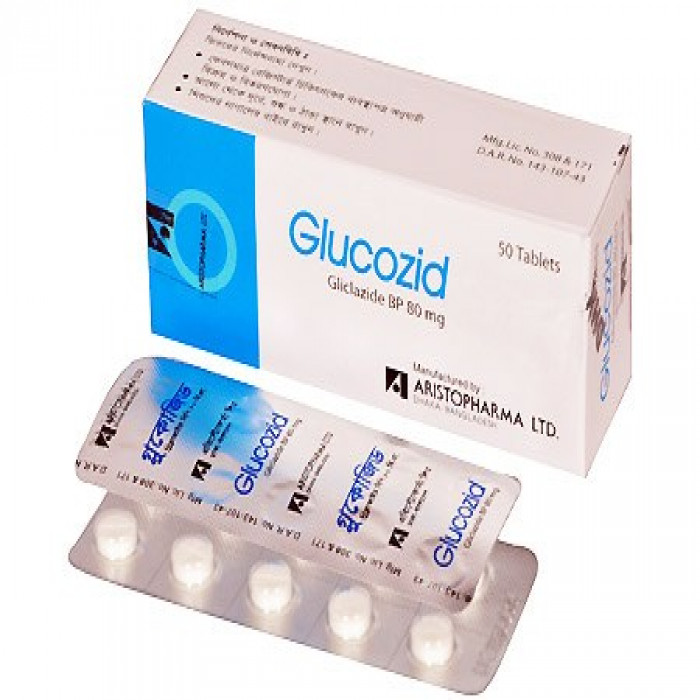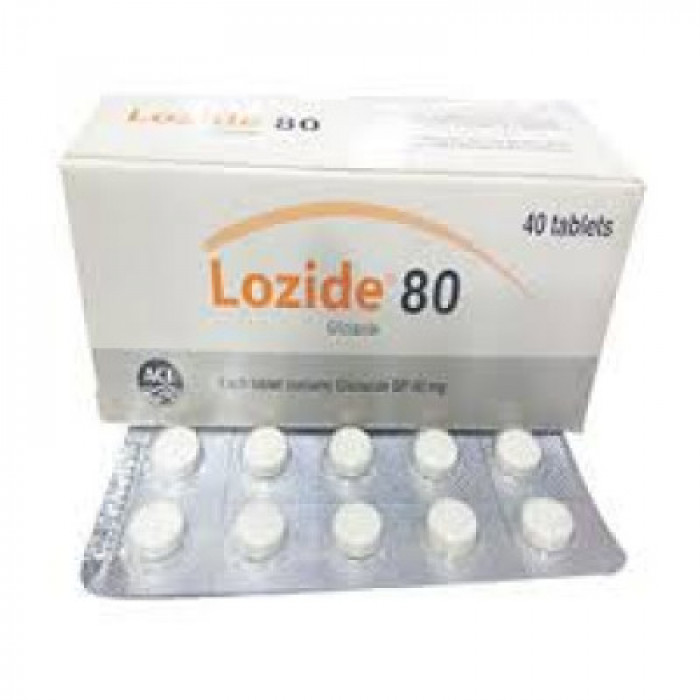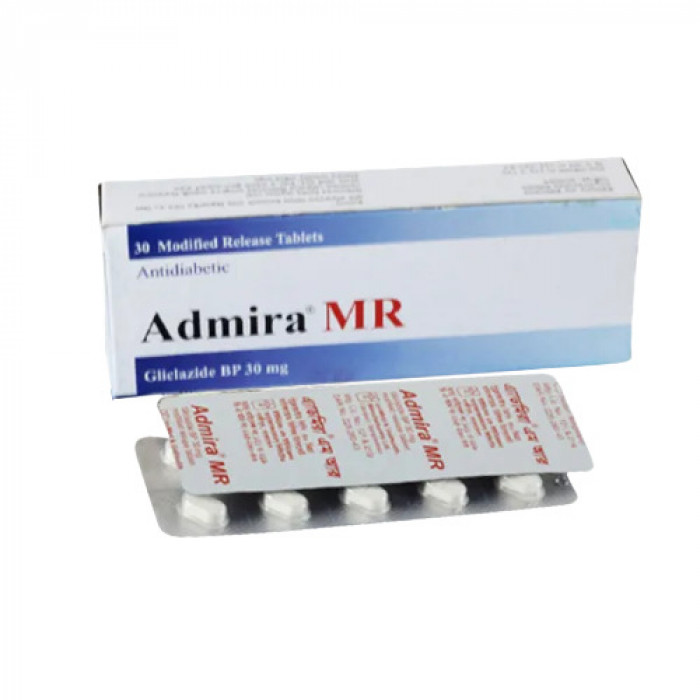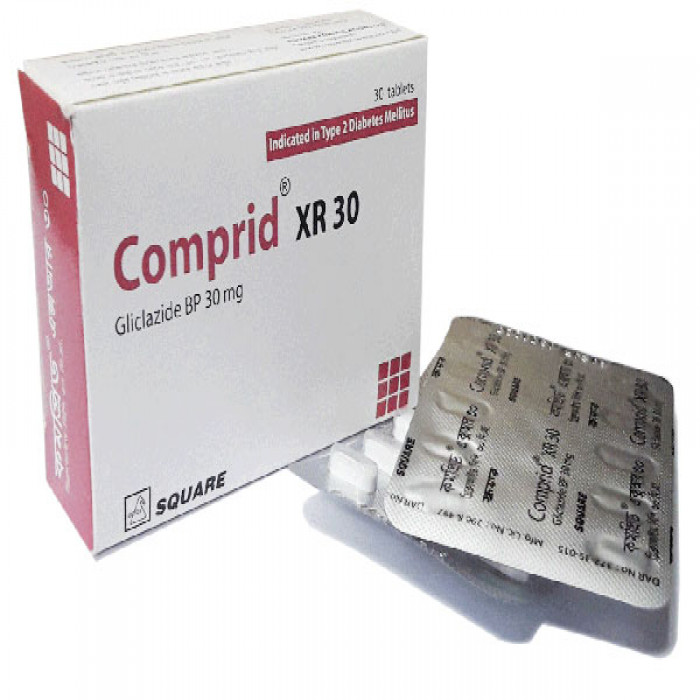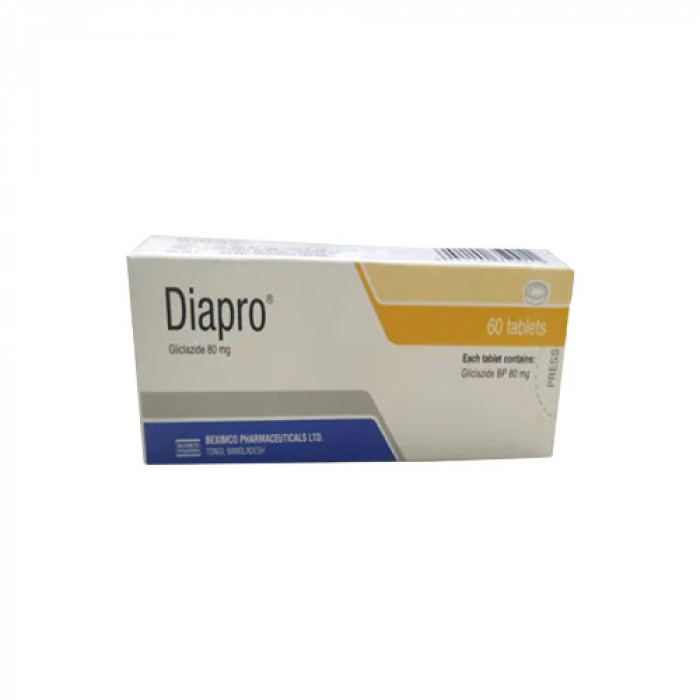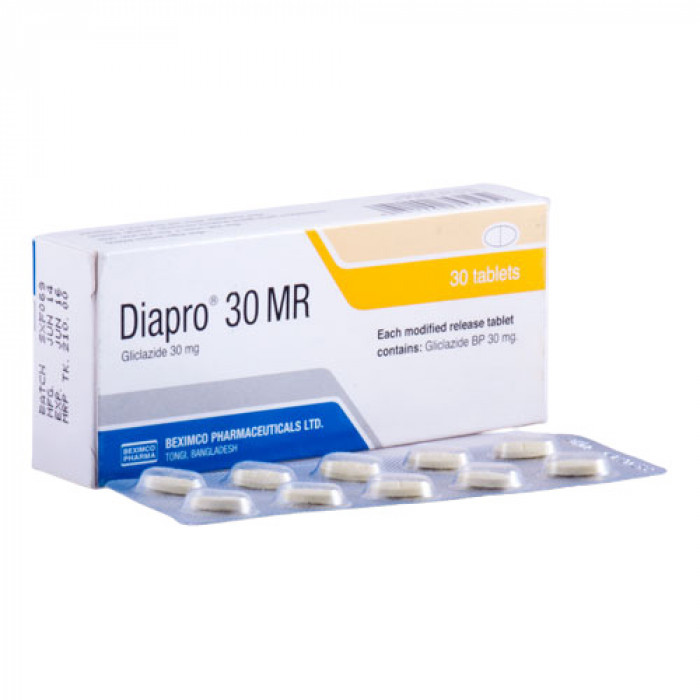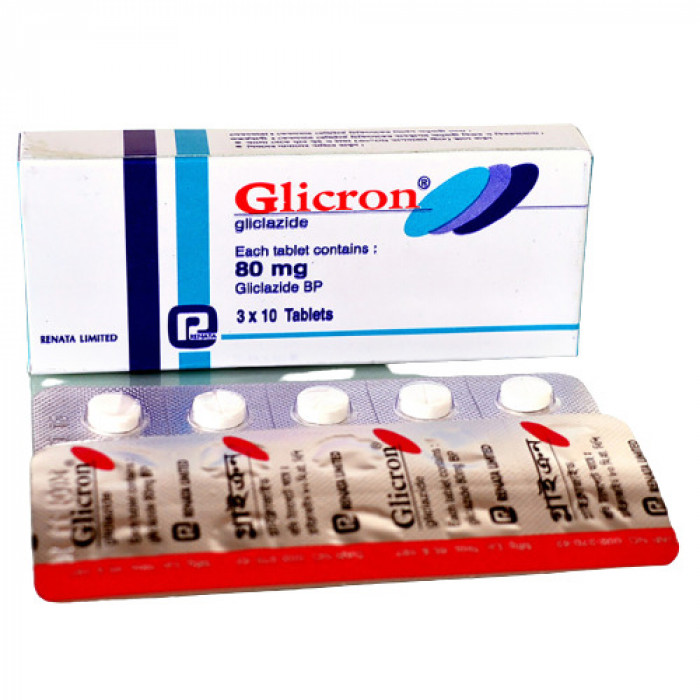
✔ 100% Authentic Product
👁️ Currently Viewing 1914
Gliclazide, a second-generation sulfonylurea, has blood sugar-lowering and hematological benefits. It works by stimulating insulin secretion from pancreatic beta cells, aiding calcium transport across cell membranes, and reducing glucose production in the liver.
Discount
Price: ৳ 206
MRP:
৳
210
2%
Off

100% Genuine Products, Guaranteed

Safe & Secure Payments, Always

Fast, Secure & Efficient Delivery

Proper Packaging
 Cash on Delivery - All over Bangladesh
Cash on Delivery - All over Bangladesh Regular Delivery - 12-24 Hours, Dhaka City* Charge Tk.39-59
Regular Delivery - 12-24 Hours, Dhaka City* Charge Tk.39-59 Regular Delivery - 24-48 Hours, Other Cities* Charge Tk.99-110
Regular Delivery - 24-48 Hours, Other Cities* Charge Tk.99-110
 ফ্রি ডেলিভারিঃ - ৯৯৯ টাকা+ অর্ডারে, ঢাকা
শহরে
ফ্রি ডেলিভারিঃ - ৯৯৯ টাকা+ অর্ডারে, ঢাকা
শহরে ফ্রি ডেলিভারিঃ - ২৯৯৯ টাকা+ অর্ডারে, ঢাকার
বাহিরে
ফ্রি ডেলিভারিঃ - ২৯৯৯ টাকা+ অর্ডারে, ঢাকার
বাহিরে
100% Genuine Products, Guaranteed
Safe & Secure Payments, Always
Fast, Secure & Efficient Delivery
Proper Packaging
 Cash on Delivery - All over Bangladesh
Cash on Delivery - All over Bangladesh Regular Delivery - 12-24 Hours, Dhaka City* Charge Tk.39-59
Regular Delivery - 12-24 Hours, Dhaka City* Charge Tk.39-59 Regular Delivery - 24-48 Hours, Other Cities* Charge Tk.99-110
Regular Delivery - 24-48 Hours, Other Cities* Charge Tk.99-110 ফ্রি ডেলিভারিঃ - ৯৯৯ টাকা+ অর্ডারে, ঢাকা
শহরে
ফ্রি ডেলিভারিঃ - ৯৯৯ টাকা+ অর্ডারে, ঢাকা
শহরে ফ্রি ডেলিভারিঃ - ২৯৯৯ টাকা+ অর্ডারে, ঢাকার
বাহিরে
ফ্রি ডেলিভারিঃ - ২৯৯৯ টাকা+ অর্ডারে, ঢাকার
বাহিরে
✅ Description:
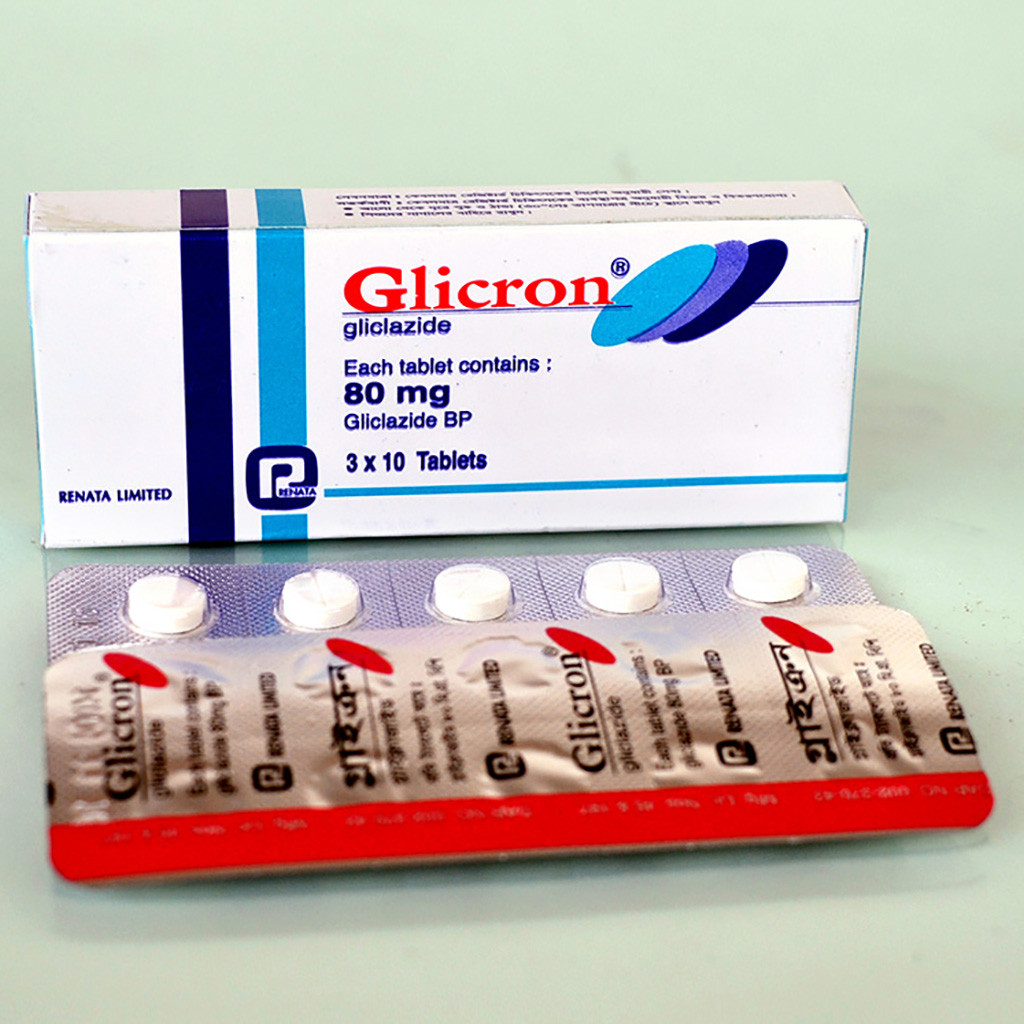
✔️ Uses of Glicron 80
- Type 2 diabetes mellitus
✔️ How does Glicron 80 work?
Glicron 80 works by increasing the amount of insulin released by the pancreas to lower blood sugar levels.
✔️ Side Effects of Glicron 80
Common side effects include low blood sugar, nausea, and digestive issues. Rare effects include liver dysfunction, skin reactions, and blood disorders. For severe symptoms like jaundice, rashes, or bleeding, stop taking the medicine and seek medical advice.
✔️ Quick Suggestions:
- Take Glicron 80 shortly before or with the first main meal of the day (usually breakfast). Avoid skipping meals.
- Be careful while driving or operating machinery until you know how the Glicron 80 Tablet affects you.
- It can cause hypoglycemia (low blood sugar level) when used with other antidiabetic medicines, alcohol, or if you delay or miss a meal.
- Always carry some sugary food or fruit juice with you in case you experience hypoglycemic symptoms such as cold sweats, cool pale skin, tremors, and anxiety.
- Your doctor may check your liver function regularly. Inform your doctor if you develop symptoms, such as abdominal pain, loss of appetite, or yellowing of the eyes or skin (jaundice).
✔️ Effect of Glicron 80
The effect of this medicine lasts for an average duration of 24 hours.
✔️ How to Take Glicron 80
Take Glicron 80 in the dose and duration as advised by your doctor. Swallow it as a whole. Do not chew, crush, or break it. Glicron 80 is to be taken with food.
✔️ Dosage & Administration of Glicron 80
For film-coated tablets, the typical starting dose is 40–80 mg daily, which may be increased to a maximum of 320 mg per day in divided doses. Tablets should be taken before meals. Gliclazide is not recommended for children with juvenile-onset diabetes.
For modified-release tablets, the dose is determined by your doctor based on blood sugar levels. The daily dose ranges from 1–4 tablets (up to 120 mg) taken at breakfast, with water, preferably at the same time each day. Swallow the tablets whole without chewing or crushing them, and always eat a meal afterward.
If combining Gliclazide with other medications like metformin or insulin, your doctor will adjust the dosage individually. If your blood sugar remains high despite following the prescription, consult your doctor.
✔️ Missed or Overdose Instructions
- If you miss a dose, take the next one at the usual time—do not double the dose.
- In case of an overdose, symptoms of low blood sugar (e.g., dizziness, sweating) can be managed by consuming sugar or sugary drinks immediately. For severe symptoms, contact a doctor or visit the hospital immediately.
✔️ Discontinuation
As diabetes treatment is generally lifelong, do not stop taking Glicron without consulting your doctor, as this may cause high blood sugar levels and increase the risk of complications.
✔️ Interactions
Glicron’s blood sugar-lowering effects may increase when taken with medications like insulin, sulfonamides, or beta-blockers. However, its efficacy may decrease with corticosteroids, certain diuretics, or alcohol. Always inform your doctor about any other medications you’re taking.
✔️ Do not use Glicron if you:
- Have type 1 diabetes or diabetic ketoacidosis
- Have severe kidney or liver disease
- Are allergic to gliclazide, sulfonylureas, or related drugs
- Are breastfeeding
✔️ Precautions & Warnings
- Monitor blood sugar regularly during treatment, especially in the initial weeks, as the risk of low blood sugar (hypoglycemia) may be higher.
- Always carry a sugar source to manage hypoglycemia.
- Consult your doctor if undergoing stress (e.g., surgery) or taking medications like antibiotics (fluoroquinolones), as they may cause blood sugar fluctuations.
- Avoid use during pregnancy or in children due to insufficient data.
✔️ Storage and Disposal
Store below 30°C, away from children. Do not use after the expiration date. Properly dispose of unused medication to protect the environment.
⚠️Disclaimer:
At ePharma, we’re committed to providing accurate and accessible health information. However, all content is intended for informational purposes only and should not replace medical advice from a qualified physician. Please consult your healthcare provider for personalized guidance. We aim to support, not substitute, the doctor-patient relationship.




